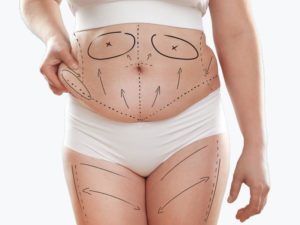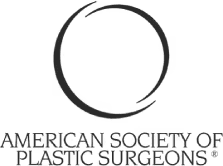Facelift
Facelift Recovery: What to Expect and How to Speed Up Healing

Undergoing a facelift surgery is a transformative journey toward achieving a more youthful appearance.
Dr Faisal Salim, a renowned expert in plastic surgery, understands that the success of your facelift doesn’t solely depend on the surgical procedure itself but also on the recovery process that follows.
Let’s understand what you can expect during your facelift recovery and how you can expedite the healing process.
What To Expect During Recovery after Facelift Surgery?
Here are some phase-wise insights about what to expect during facelift recovery time.
Immediate Post-Surgery Insights:
Expect to be in a sensitive state right after surgery. Having a designated driver is essential for your journey back home. Your face will be wrapped in dressings, which will be removed during your follow-up appointment.
Post-Operative Care: A Vital Phase
Facelift recovery time may extend with negligence during the recovery phase. Hence it’s important to understand the vitals in each recovery phase.
Initial Days – A Time for Rest and Support:
After your facelift surgery, you won’t be alone. It’s crucial to have someone with you during the first 24 hours, as rest is a must. Keep in mind that your activity level should be minimal; think of this as a time for rejuvenation. During the facelift recovery time, you must also mind
- Taking Care of Yourself: Your diet plays a significant role in your recovery. A balanced diet and ample hydration aid healing. Avoid alcohol, and if you’re on iron-containing vitamins, resume them as advised.
- Say no to smoking: Smoking can stall healing and invite complications.
- Follow Your Surgeon’s Advice: Dr Faisal recommends wearing a compression garment for a specified duration. This support aids in managing swelling and ensuring optimal healing. This garment is a key element in your recovery toolkit.
Dr Faisal will give you a generalised recovery duration of the facelift; however, this period may be shortened, and recovery could be faster using some facelift recovery tips.
How to Speed Up Healing?
For those who pose a direct question about “what is the recovery time for a facelift”, recovery time isn’t uniform for everyone. It hinges on factors like your overall health, your body’s natural healing capacity, and the extent of the surgery.
To accelerate healing after a facelift, consider these key strategies:
- Follow the Surgeon’s Instructions: Adhere closely to your surgeon’s post-operative guidelines for optimal healing.
- Compression Garment: Wear the recommended compression garment as directed to manage swelling.
- Healthy Diet: Consume a balanced diet rich in nutrients to support your body’s recovery processes.
- Hydration: Stay adequately hydrated to aid tissue repair and reduce swelling.
- Rest: Prioritise sufficient sleep and rest to promote overall healing.
- Elevation: Keep your head elevated while resting to reduce post-surgery swelling.
- Gentle Movements: Engage in light, controlled movements to encourage blood circulation without straining.
- Avoid Smoking and Alcohol: Both can impede healing, so abstain during the recovery period.
- Pain Management: Use prescribed pain medications as needed to ensure comfort.
- Avoid Sun Exposure: Shield incisions from direct sunlight to prevent scarring.
- Careful Incision Care: Cleanse incisions as instructed and keep them dry to prevent infection.
- Stay Active Moderately: Gradually reintroduce light physical activity as approved by your surgeon.
- Positive Mindset: Maintain a positive attitude and manage stress, as it can positively impact healing.
By diligently implementing these practices, you can enhance your facelift recovery and foster a quicker return to feeling your best.
Facelift Recovery: Managing Expectations and Progress
Navigating the recovery phase after a facelift demands setting realistic expectations while understanding the evolving journey towards rejuvenation.
Here’s a glimpse into what you can anticipate during this crucial period:
- Initial Discomfort: Expect the maximum discomfort within the first few days post-surgery, gradually improving with each passing day.
- Bruising, Swelling, and Sensations: Bruising, swelling, numbness, tightness, and skin tenderness can persist for around 10-14 days or possibly longer as your body heals.
- Compression Garment Support: You’ll be provided with a compression garment to wear upon returning home. This garment not only offers support but also aids in managing swelling.
- Neck Tightness and Mobility: It’s common to experience neck tightness and difficulty turning your head from side to side for 1-2 months.
- Skin Changes: The skin might feel dry and rough for several months as it adapts to the changes from the surgery.
- Temporary Facial Changes: Due to swelling, your face might appear and feel unusual, with possible distortion.
- Facial Hair Considerations for Men: Male patients may need to adjust their grooming routine, as beard-growing skin might be repositioned during the surgery.
Appearance During Recovery:
- Initial Phase: The early weeks may present a pale, bruised, and puffy face, indicative of the healing process.
- Camouflaging Swelling: Scarves, turtlenecks, and high-collared blouses can effectively mask swelling and discolouration.
- Progress by Third Week: By the third week, noticeable improvements in both appearance and comfort levels are likely.
- Full Realization of Results: While visible enhancements become apparent within weeks, the ultimate, comprehensive outcome may take up to 6 months to fully materialize.
Follow-Up and Continuity:
- First Follow-up: Your first postoperative appointment is scheduled within the initial 24 hours after your surgery, enabling prompt monitoring of your progress.
- Suture Removal: Typically, sutures located in front of the ear are removed in 3-5 days.
- Complete Suture Removal: Remaining sutures and any metal clips, if used, are generally removed within 1-2 weeks.
Understanding these recovery milestones, coupled with diligent follow-up and adherence to your surgeon’s guidance, ensures a smoother journey towards embracing your renewed and revitalised self.
Expert Guidance, Bespoke Care: By Dr Faisal Salim
Facelift recovery is a crucial phase in your transformational journey. By closely adhering to Dr Faisal Salim’s guidance and these proven recovery tips, you’ll be well on your way to a faster, more comfortable, and more successful healing process.
As a trusted expert in plastic surgery, Dr Faisal Salim’s skilful hands and compassionate care make him the ideal choice for your facelift journey. Remember, your partnership with your surgeon and your commitment to recovery instructions are the keys to achieving the best facelift results.
Patient Testimonials








